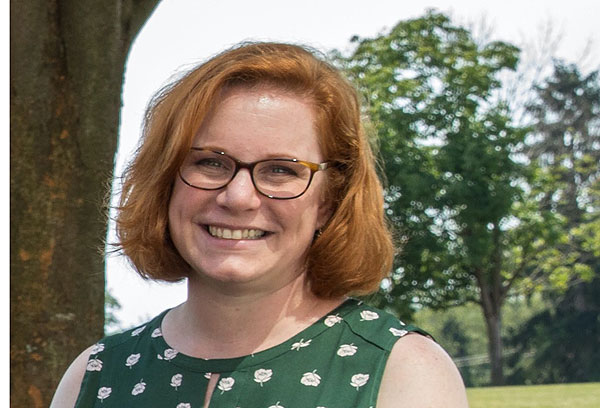President's Blog: From the Heart

A Community of Care and Support
By Eric F. Spina
In the midst of the pandemic, Holly Harmon arrived on campus as the new director of the Counseling Center and quickly realized the times we live in called for a new, more nimble approach to serving students.
“Students are experiencing academic stress. They’re isolated. They’re worried about their job prospects. They’re worried about grandma, mom, and dad getting sick, maybe even dying,” she said. “For our students, it feels like whiplash.”
Holly, a clinical social worker who started Robert Morris University’s Counseling Center from scratch eight years ago, told our Board of Trustees in January that the pandemic has only exacerbated student mental health issues, which had already escalated dramatically on college campuses over the past decade.
Beyond being socially disconnected, some students only know “COVID as college,” she said. They only know how to connect with people over Zoom or social media. Some believe divisive, ugly political rhetoric is normal, not an aberration. Many are anxious and uncertain about what the future will bring.
“We’re trying to help them put these times into context,” she said, pointing out that UD is poised to help students through stressful times. Part of the Marianist philosophy of building community revolves around coming to the table and having difficult and often uncomfortable conversations.
That’s one premise behind the Counseling Center’s expansion of services, which now include 11 virtual therapy groups on topics ranging from mindfulness and self-compassion techniques to COVID support for those in quarantine. One drop-in group invites any student facing anxiety to learn coping strategies and share support from peers with the same struggle. Every Monday morning, the center releases 20 slots for informal “Let’s Talk” sessions with a counselor for students who want to talk through challenges they are facing.
“We want to make the advice of a mental health counselor as accessible as possible — and that means thinking beyond individual sessions,” said Holly, who spent the first dozen years of her career counseling adolescents in Pittsburgh. “Something incredible happens in a group when one student shares an experience. It sparks others to come forward. It’s the power of connecting.”
These initiatives are part of a larger campus-wide effort to support the wellbeing of students. Melissa Longino, assistant vice president for health and wellbeing and executive director of campus recreation, told trustees about a new platform, You@Dayton,” that will connect students to campus resources and feature tips and tools for everything from mental, physical, and social health, to spiritual connection, finding balance, and academic success. UD’s Brook Center for Empowerment and Wellbeing implemented “Co-Pilots” — trained peer health coaches — and just last month, hired its inaugural coordinator of mental health education.
We’re taking a holistic, full-court press approach to a complex challenge, and I applaud these initiatives. In Marianist fashion, we’re building a community of care and support — one that will help our students not just cope with adversity, but learn to thrive
